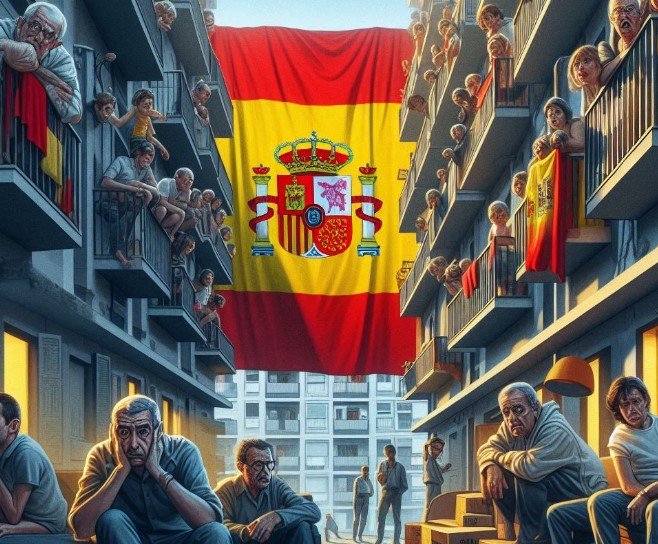A recent GAD3 survey highlights the deep concern among the Spanish population regarding the country’s political situation. Nearly seven out of ten Spaniards (69.8%) perceive the political situation as “bad” or “very bad.” This underscores the ongoing tensions that characterize the Parliament and create an unyielding atmosphere.
Polarization and Stalemate: A Look Behind the Scenes
Plenary sessions reflect the increasing polarization that has characterized Spanish politics in recent years, which has intensified further in recent months. While the right accuses Pedro Sánchez’s policies and the PSOE of “degeneration” and “corruption,” the left criticizes the opposition for “exacerbating” crises and practicing “armband” patriotism.
The current legislative period, nearing its halfway point and increasingly smelling of a pre-election atmosphere, is marked by stagnation. The executive, led by PSOE and Sumar, is governing for the second consecutive year without a national budget – a situation last surpassed only by Felipe González in 1996, which led to snap elections. The internal division within the opposition and the tough negotiations with parties like Junts or Podemos also contribute to the tense situation.
Historical Lows and Economic Optimism
Current dissatisfaction with the political situation reaches one of the highest values in the last four years, though not reaching the level of July 2021, when the Sánchez government experienced its biggest crisis. At that time, 73.1% of Spaniards considered the situation “bad” or “very bad.” In contrast, only 8% of respondents rate the political situation as “good” or “very good,” one of the three lowest values in over three years.
Regarding the economic situation, there is cautious optimism. Although the majority (41.8%) still rate the economic situation as “bad” or “very bad” since summer 2021, 34.4% see it as “regular,” and a respectable 23.8% as “good” or “very good.”
Housing Shortage: The Biggest Concern for Spaniards
The housing issue has become the biggest problem for Spaniards, with 36% of mentions, even surpassing corruption. Almost nine out of ten respondents (86%) believe that access to housing has worsened in the last five years. The concern is broadly felt across political lines, highlighting the urgency of this problem. The vertical escalation of property prices forces young people to work an average of 16 years to make a down payment on a house while simultaneously saving 20% of their monthly salary. In hotspots like the Balearic Islands, this figure rises to 33 years, and in Madrid to 25 years.
Corruption and Labor Market: Mixed Feelings
Corruption also remains a central issue. More than 60% of Spaniards believe that corruption has worsened, while only 9% see an improvement. The division of opinion here is ideological: while 88% of PP and Vox voters see a deterioration, 45% of PSOE voters note an improvement.
The employment situation, the sixth biggest concern in the country, also shows mixed feelings. Although Spain recorded its lowest unemployment rate since July 2008 (2.5 million) in April, nearly half (46%) of respondents believe the situation has worsened. Only a quarter (24%) see an improvement. The quality of public services is also largely perceived as having deteriorated (53%), especially by voters of right-wing parties.




